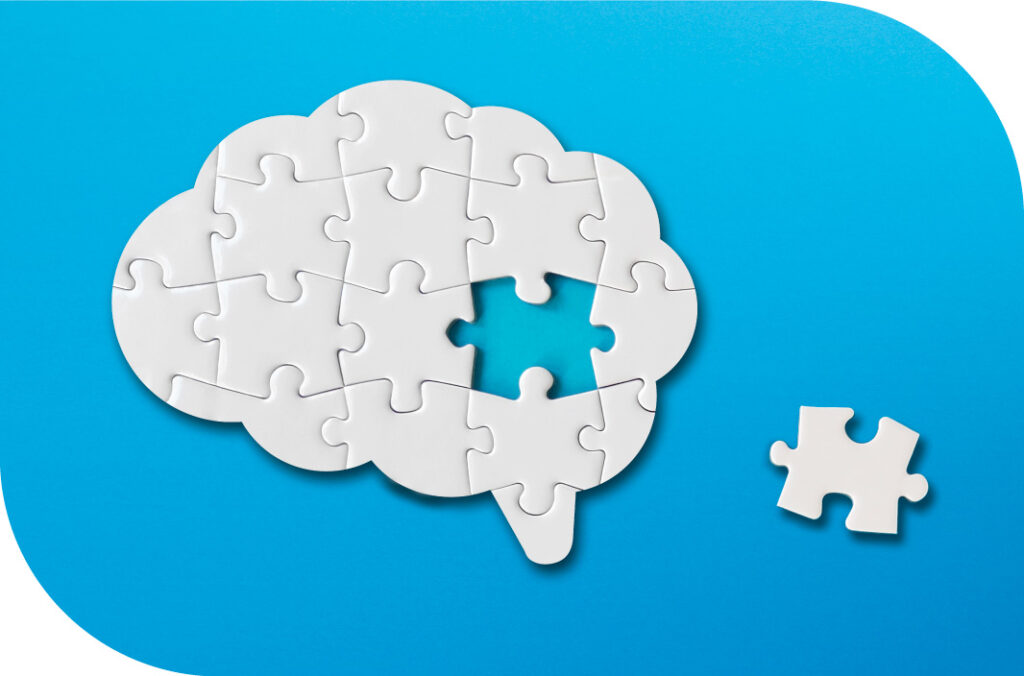“Great acts are made up of small deeds.”
-Lao Tzu
In the heart of New Jersey, amidst a thriving population and cherished memories, a subtle yet pressing concern is emerging: memory loss among older adults. As individuals age, the prevalence of memory-related conditions like Alzheimer’s disease becomes increasingly prominent, impacting not only the affected individuals but also their families and communities.
The Alzheimer’s Association reports that currently, approximately 190,000 elderly individuals in New Jersey grapple with Alzheimer’s disease. Yet, with projections indicating a staggering 52% increase in dementia patients by 2043, the issue of memory loss demands delicate and thoughtful attention.
Losing memories of loved ones and experiencing shifts in mood, attitude, and mental well-being can be profoundly disorienting. In such times, caregivers emerge as beacons of compassion, armed with patience, empathy, and a deep awareness of their patients’ needs. They understand that even the smallest gestures can have a profound impact on the lives of those under their care.
Understanding Memory Loss

Memory loss, often referred to as amnesia, can touch lives at any age, affecting various aspects of our well-being. It manifests through simple acts like misplacing objects, experiencing fleeting forgetfulness, and struggling with a shorter attention span.
This condition can stem from a variety of factors, including the natural process of aging, unhealthy dietary habits, substance misuse, kidney or liver complications, stress, sleep disturbances, and even head injuries, such as concussions.
Memory loss isn’t just about forgetting minor details or losing track of items; it can be much deeper. Memory loss, or amnesia, can represent a challenge in its own right. It often signals underlying conditions like mild cognitive impairment, dementia, or Alzheimer’s disease.
Within this realm, memory loss manifests in two main forms: acute memory loss and progressive memory loss. Each of these presents its unique set of challenges and implications for those affected.
| Acute memory loss, or amnesia, usually occurs due to an immediate effect or brain injury that affects one’s memory process. | Unlike acute memory loss, progressive memory loss happens over a long period and could be caused by mild cognitive impairment or dementia, such as Alzheimer’s disease, vascular dementia, Lewy body dementia, or frontotemporal dementia. |
| Patients with acute memory loss experience changes such as their inability to remember events that happened to them, difficulty recollecting faces and names, forgetting locations and directions, and confabulation. (Confabulation is a form of memory in which the patient fills their memory or recalls details with untrue or distorted parts.) | Patients with progressive memory loss gradually experience problems with their abilities to think, understand, and control their movements, language, visuals, attention span, and speech. They also experience problems with their mood and behavior. |
Individuals grappling with memory loss require abundant care, patience, and unwavering support. Their journey is fraught with hurdles, often hindering their participation in everyday activities that could potentially enhance their overall well-being.
The Healing Power of Meaningful Activities

It’s crucial for patients experiencing memory loss to feel a sense of normalcy, as the condition may lead them to withdraw from interactions and activities with their family, friends, and loved ones. Engaging in meaningful activities provides them with the opportunity for a fulfilling and self-expressive life. Here are several activities that caregivers can involve patients in to facilitate self-expression and a sense of purpose.
Gardening:
The Alzheimer’s Society emphasizes the significance of gardening for individuals with dementia, affirming that “For people who are living with dementia, well-being is also tied to the ability to enjoy familiar activities, and which cultivate a feeling of comfort. Garden therapy is at the top of that list.”
One of our patients at Emerest Health of New Jersey was showing early signs of memory loss. He had a deep-seated passion for gardening, a trait his caregiver observed. Together, they transformed his neglected patio into a quaint garden oasis, adorned with easy-to-care-for plants and flowers.
As the garden flourished, so did his spirits. The simple act of tending to it daily infused him with a sense of normalcy, purpose, and joy. What’s more, this shared endeavor deepened the bond between the caregiver and the patient. Gardening isn’t just about nurturing plants; it nurtures the mind and soul.
Whether it’s a mobile, indoor, or outdoor garden, gardening stimulates patients’ senses, fosters a connection to nature, and is even thought to reduce the risk of Alzheimer’s disease. Additionally, it’s gentle on the body, boosting mood and mental well-being while enhancing strength and balance.
Reading:
In the realm of memory care, reading is also a powerful ally. A study published in Neurology in 2021 suggests that reading can potentially delay the onset of dementia by up to five years. Furthermore, reading stimulates memory, cognition, and emotional connections, providing mental exercise and social engagement for memory loss patients.
Whether it’s short novels, news articles, or poetry, reading actively exercises the brain, aiding memory retention.
Painting:
Art is a beautiful avenue for self-expression and emotional release. Painting enables patients to create new memories tied to their artistic endeavors, fostering a sense of accomplishment. Caregivers can also participate in these painting sessions, fostering a safe space for relaxation and promoting a sense of comfort for patients.
The unwanted emotional challenges that come with memory loss are inevitable. Painting can serve as a therapeutic outlet, offering solace and empowerment.
Music and Dance:
Music has a unique ability to soothe the soul and uplift spirits. When paired with dance, it becomes a powerful form of therapy, bringing people together and alleviating stress and emotional turmoil.
By incorporating music and dance into patients’ care routines, caregivers can provide patients with an avenue to release anxiety, depression, and sadness, promoting emotional well-being and connection.
Reminiscence:
Lastly, reflecting on cherished memories can be a potent tool in combating depression. Home health aides can encourage this by reminiscing about positive events and aspects of the patient’s life, using various reinforcements like video clips, photos, and music.
Engaging in these discussions with genuine interest and attention helps patients feel relaxed and valued, fostering a sense of well-being and connection with loved ones.
The Caregiver’s Initiative

Memory loss often accompanies significant changes in behavior, mood, and language. This can manifest in such feelings as agitation, apathy, and anxiety, presenting challenges for caregivers. Therefore, home health aides should prioritize understanding the patients’ health conditions thoroughly, ensuring effective communication and tailored support. Below are some recommended tips for achieving this:
- Administering care and promoting beneficial activities tailored to the individual’s needs.
- Initiating communication with patients’ families to better understand their backgrounds and preferences.
- Communicating effectively with patients by demonstrating patience, humor, and sensitivity to nonverbal cues.
- Encouraging physical activities suitable for patients’ abilities to enhance physical health and emotional well-being.
- Selecting mental and creative activities that stimulate cognitive function and allow for self-expression.
- Ensuring patients maintain a healthy diet and personal hygiene to support overall well-being.
- Exemplifying patience and compassion in providing care and fostering connections with patients, family, and surroundings.
Impact on the Patient

Through their genuine gestures, caregivers cultivate a nurturing environment where patients feel valued, safe, and understood. Whether it is through heartfelt conversations, shared activities, or moments of quiet companionship, caregivers leave an indelible mark on the lives of those they serve. That’s why their recommended tips and encouragement for elderly individuals coping with memory loss are invaluable. Establishing structure, fostering social connections, enhancing self-confidence, and offering emotional support are just a few ways home health aides can profoundly influence those under their care.
Creating Structure:
Encouraging participation in well-organized, less strenuous activities on a daily basis helps establish a sense of normality and routine for patients. This provides them with something to anticipate and look forward to each day, contributing to improved mental health.
Encouraging Socialization:
Kind and compassionate interactions between caregivers and patients foster a sense of safety and comfort. These meaningful connections not only encourage socialization with caregivers, other patients, and loved ones but also help prevent isolation and social withdrawal, ultimately leading to improved health outcomes.
Promoting Self-Confidence:
Patients grappling with memory loss often experience diminishing recollection of significant life events, leading to frustration and diminished self-confidence. Many caregivers have the potential to and are going the extra mile to engage patients in stress-free, tailored activities that bolster their abilities. In time, this gradually rebuilds their confidence.
Emotional Stability:
Memory loss often accompanies overwhelming emotions such as sadness, anxiety, and frustration. Gestures and activities that engage the mind and heart bring joy and a sense of worth to patients, boosting their self-esteem. With patience and compassion, caregivers help stabilize patients’ emotions, fostering emotional well-being.
Lesson Learned
Acts of compassion and empathy, no matter how small, leave a profound impact on both patients and caregivers. From leisurely strolls to tending gardens, reading, singing, and sharing laughter, every act of compassion and empathy, no matter how modest, contributes to the creation of cherished memories for patients. Caregivers, through intentional efforts, are able to forge trusting relationships with patients, alleviating emotions like anxiety, neglect, and loneliness. This bond fosters self-confidence, purpose, and mental stimulation, ultimately promoting better health and stronger connections with family, friends, and caregivers.
Through intentional interactions, caregivers familiarize themselves with patients, nurturing trust and understanding. This intentional approach calms emotions like anxiety and neglect while empowering patients to cultivate self-confidence, purpose, and meaningful connections. As patients engage in activities that stimulate their minds and bodies, they gradually improve their overall well-being and develop closer bonds with their caregivers and fellow residents.
Conclusion
Amidst life’s uncertainties, simple acts of love and care hold the power to reignite hope in those facing challenges. For individuals grappling with memory loss, the journey is often fraught with emotional upheaval, leaving their loved ones struggling to cope. However, through acts of love, support, and empathy, the burden is eased, offering solace amidst the turmoil.
Effective communication, shared laughter, and engaging in meaningful activities may seem small, but their impact is profound. From reading together to attentive gestures of comfort, these acts create a supportive environment that nurtures both patients and caregivers alike.